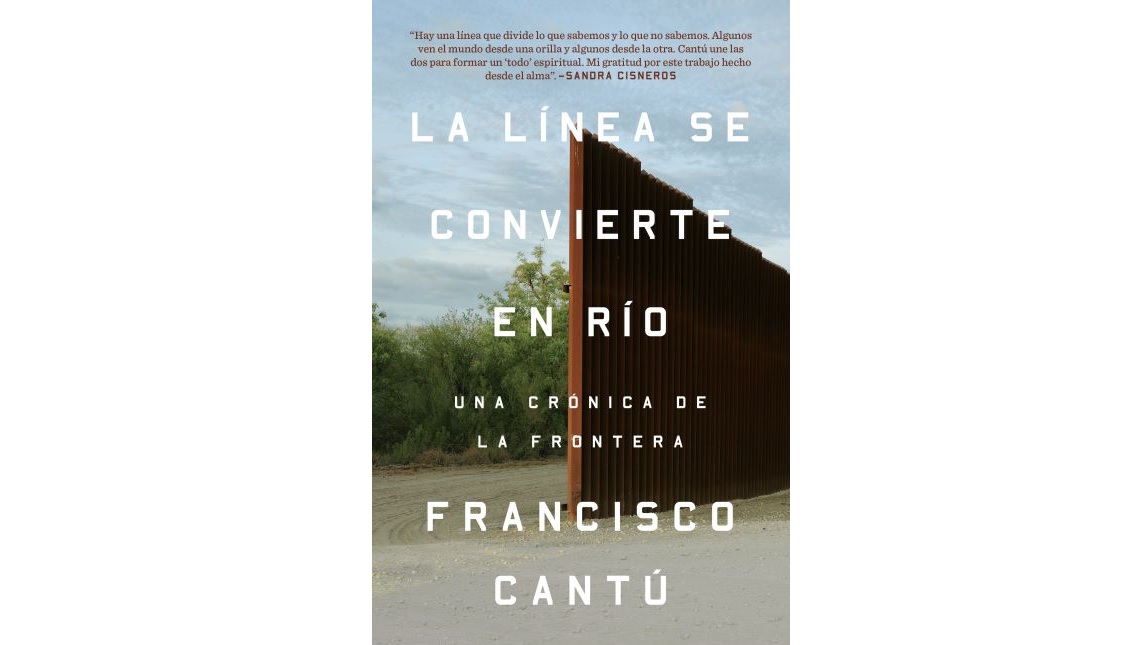
Dispatches from the US-Mexico Border
A third-generation Mexican American, Francisco Cantú decided to join the US Border Patrol to better understand the reality of the US-Mexico border. The result…
The border between Mexico and the United States has become a strong source of inspiration for many Latino authors, especially for those who experienced at home the challenge of immigration or have a deep interest in understanding the harsh reality of all those people who try to cross the desert every day, in search of a better life.
One of them is Francisco Cantú, a third generation Mexican-American and author of The Line Becomes a River, a powerful book based on journals he kept while he joined the US Border Patrol, between 2008 and 2012.
Growing up in south-west Arizona, where her Mexican mother was as park ranger, Cantú told The Guardian that "as a child he was very close to the landscape – always out in these wild places. I went on to study immigration and border policy in Washington DC, but when I was in college reading books and academic accounts of the border, I really felt like something was missing. By the time I graduated I knew that I wanted to go back to the border, to deepen my understanding of it and be out in it. So I became a border patrol."
"Inside the church, the light from my flashlight glinted off tiny strings of tinsel hanging from the ceiling. A large piece of fabric depicting the Virgin of Guadalupe was strung across the front wall, and beneath it I saw two figures lying on a blanket that had been spread out between the pews and the altar. As I approached, a man looked up at me and squinted, holding out his hand to block the light. We were resting a little, he said. It’s just that we are lost, muy desanimados. A woman huddled close to him, hiding her face. The man propped himself up on one elbow and told me that they had crossed four days ago, that their guide had left them behind on the first night when they’d failed to keep pace with the group. They were lost for days, he said, with nothing to drink but the filthy water from cattle tanks. Puede ser muy fea la frontera, I told him. The man shook his head. Pues sí, he replied, pero es aún más feo donde nosotros vivimos."
RELATED CONTENT
During his years as a Border Patrol agent, he and his partners were posted to remote regions crisscrossed by drug routes and smuggling corridors, where they learn to track other humans under blistering sun and through frigid nights. They hauled in the dead and delivered to detention those they find alive, as reported by his publishing house, Penguin Books.
Plagued by nightmares, Cantú finally abandoned the Patrol for civilian life. But when an immigrant friend travelled to Mexico to visit his dying mother and does not return, he discovered that the border has migrated with him, and so, he had to write this book.
"When I left, it all seemed infinitely more complex than when I joined. Writing this book was a way of grappling with those complexities and I was really concerned with acknowledging them", he told The Guardian. "Acknowledging the human cost of our border policy, and the ways in which individuals are caught up in it. This policy is pushing people to cross, away from the cities, away from the heavily patrolled areas, into the most remote and dangerous parts of the desert where many of them die. I mean [our policy] really serves to weaponise that landscape.
"A must-read for anyone who thinks ‘build a wall’ is the answer to anything”, wrote Esquire about Cantú's first book.
A former Fulbright fellow, he won the 2017 Whiting Award for non-fiction thanks to The Line Becomes a River, his first book. Previously, his essays and translations have been featured on This American Life and in Best American Essays, Harper’s, Guernica, Orion, n+1 and Ploughshares. He lives in Tucson, Arizona.












LEAVE A COMMENT: